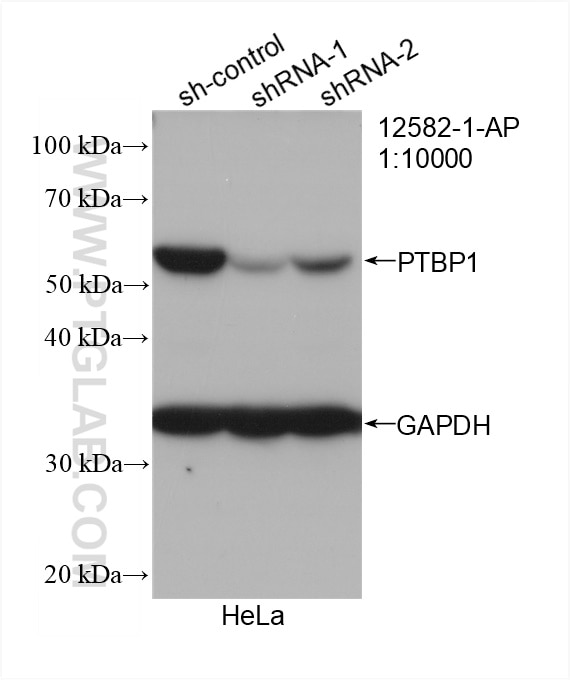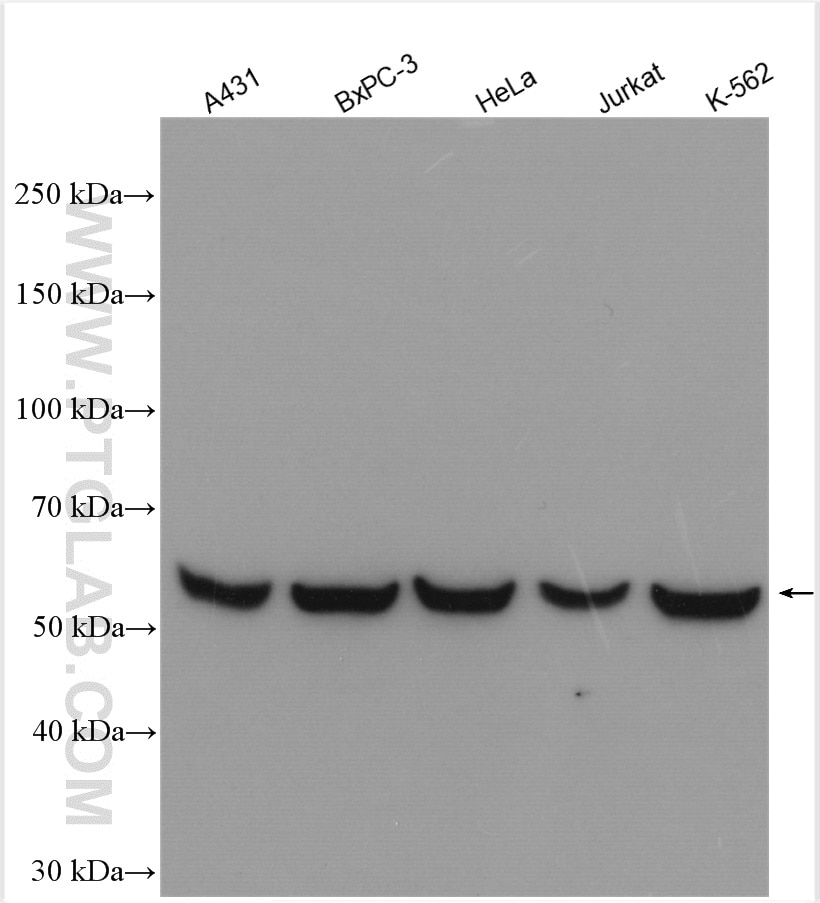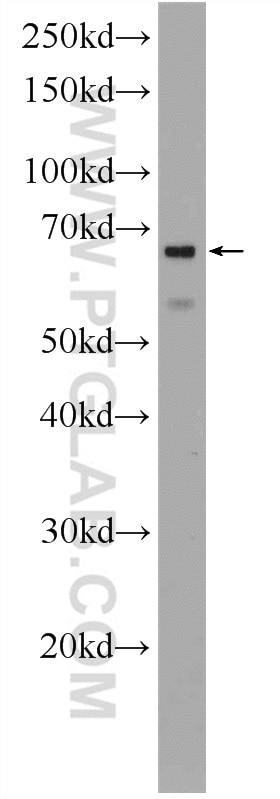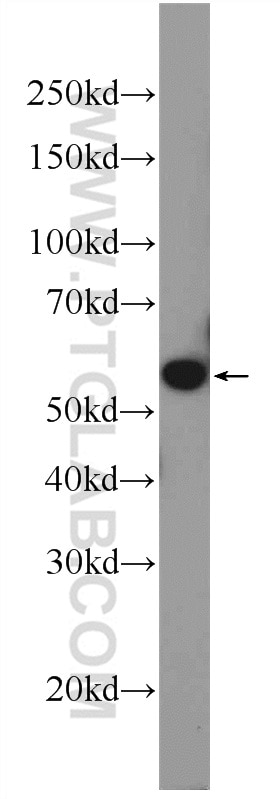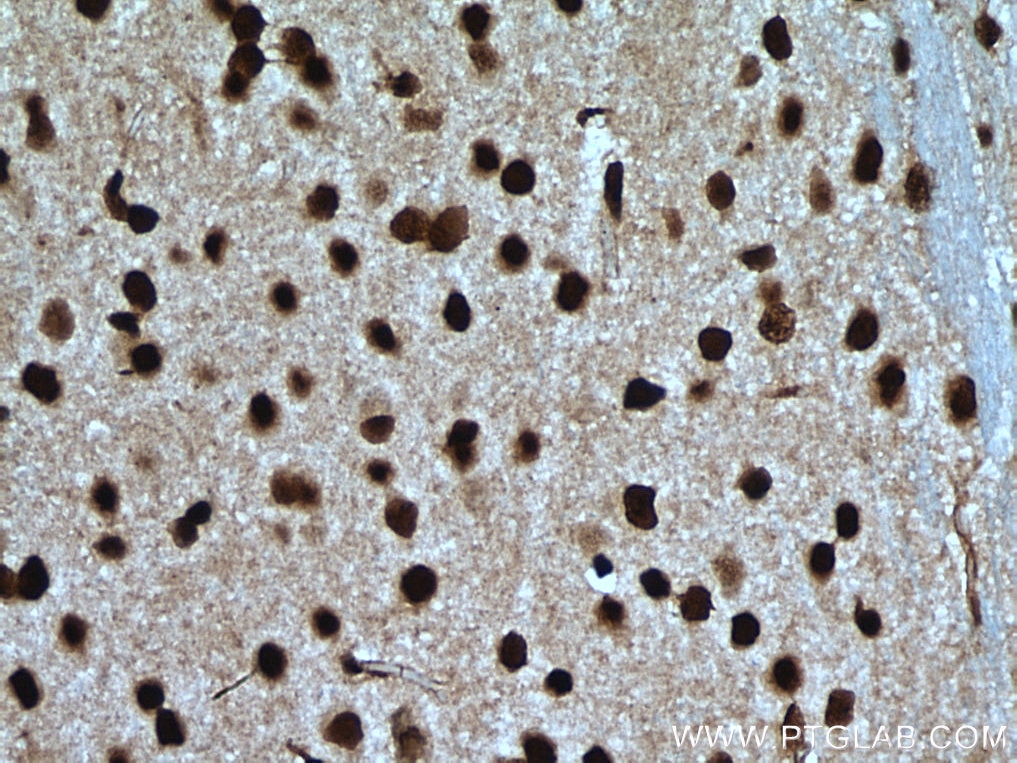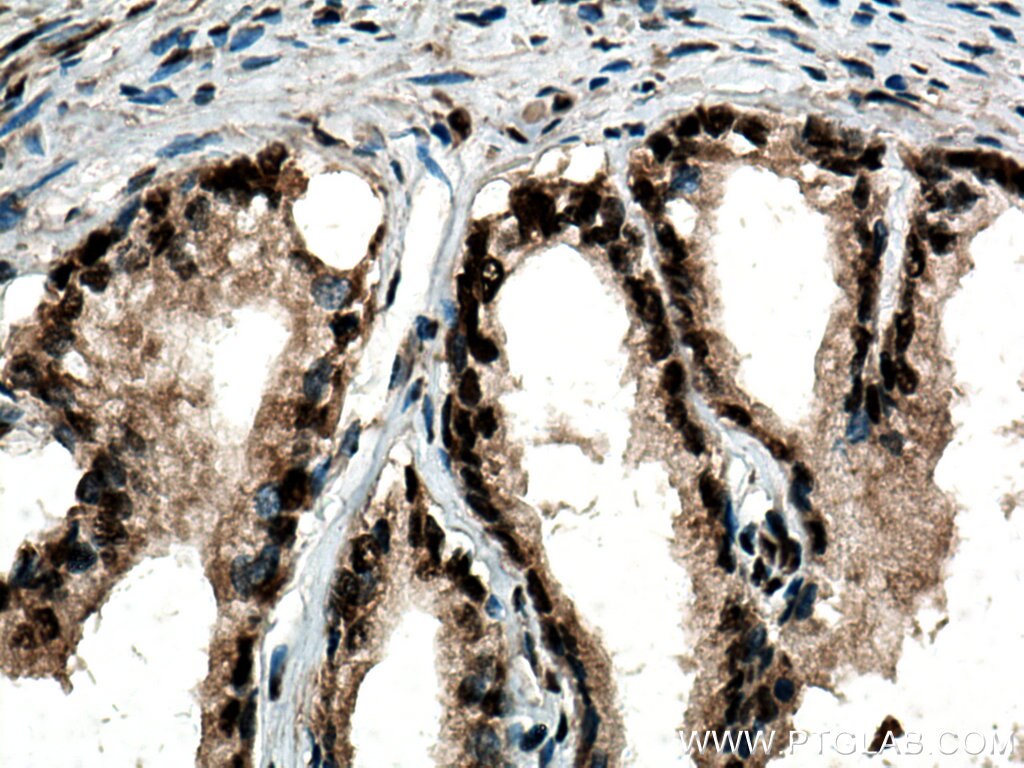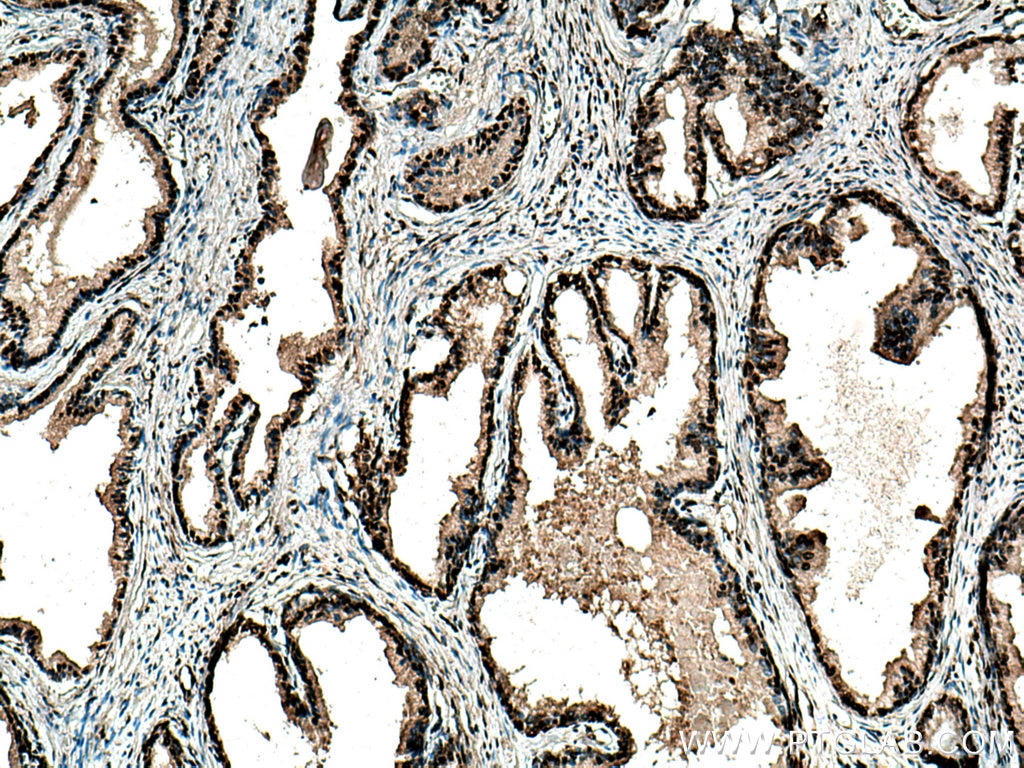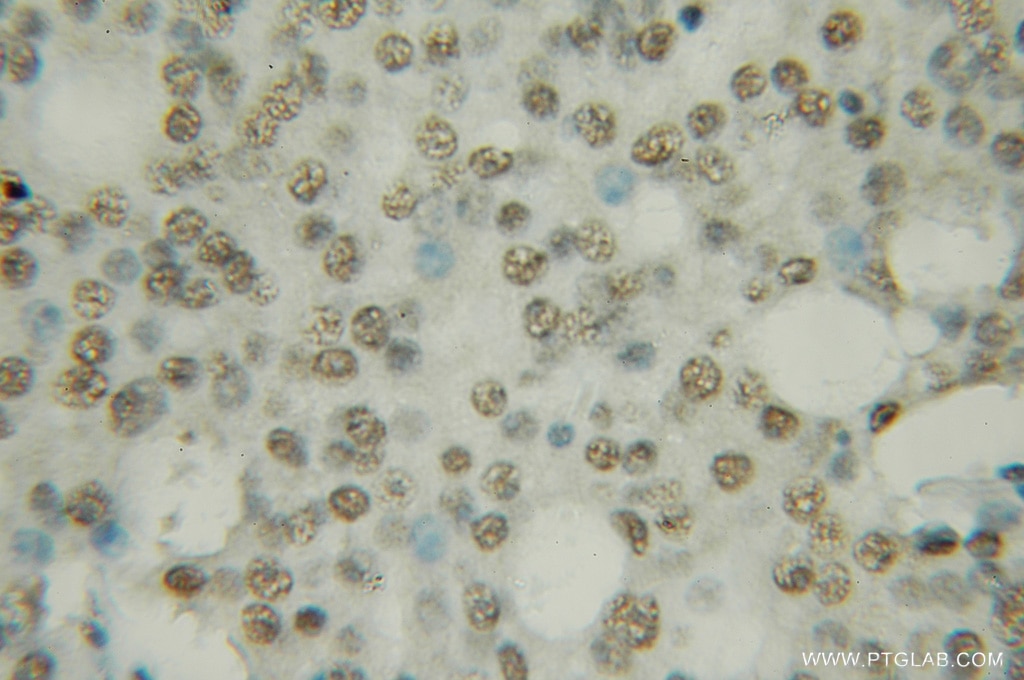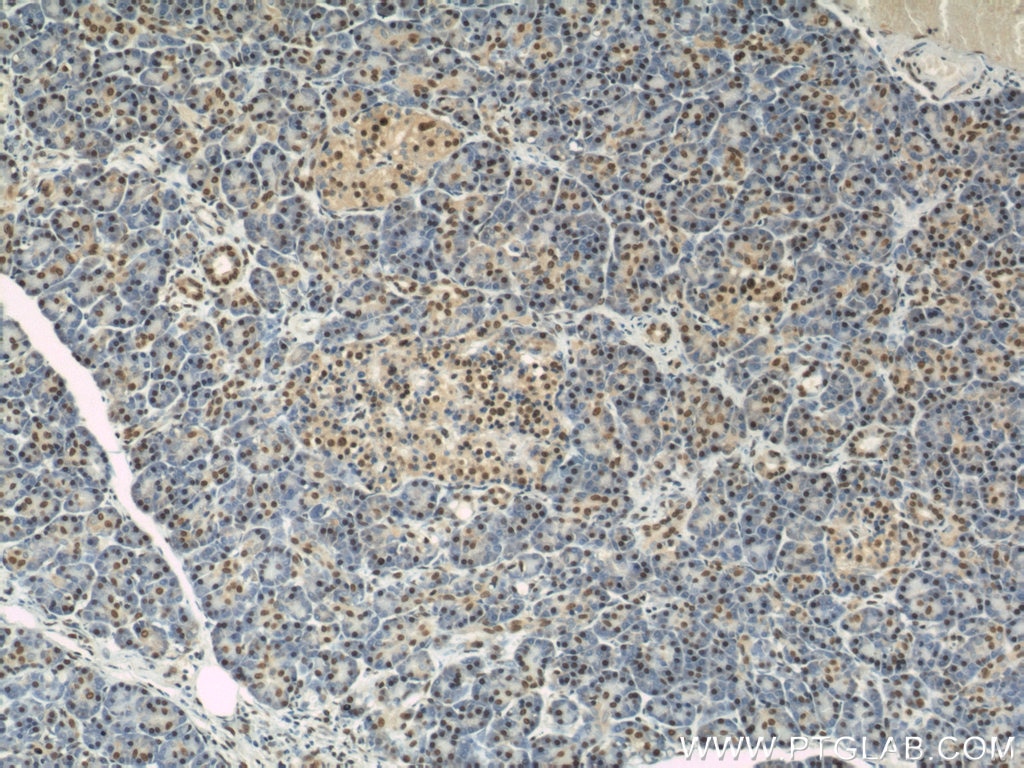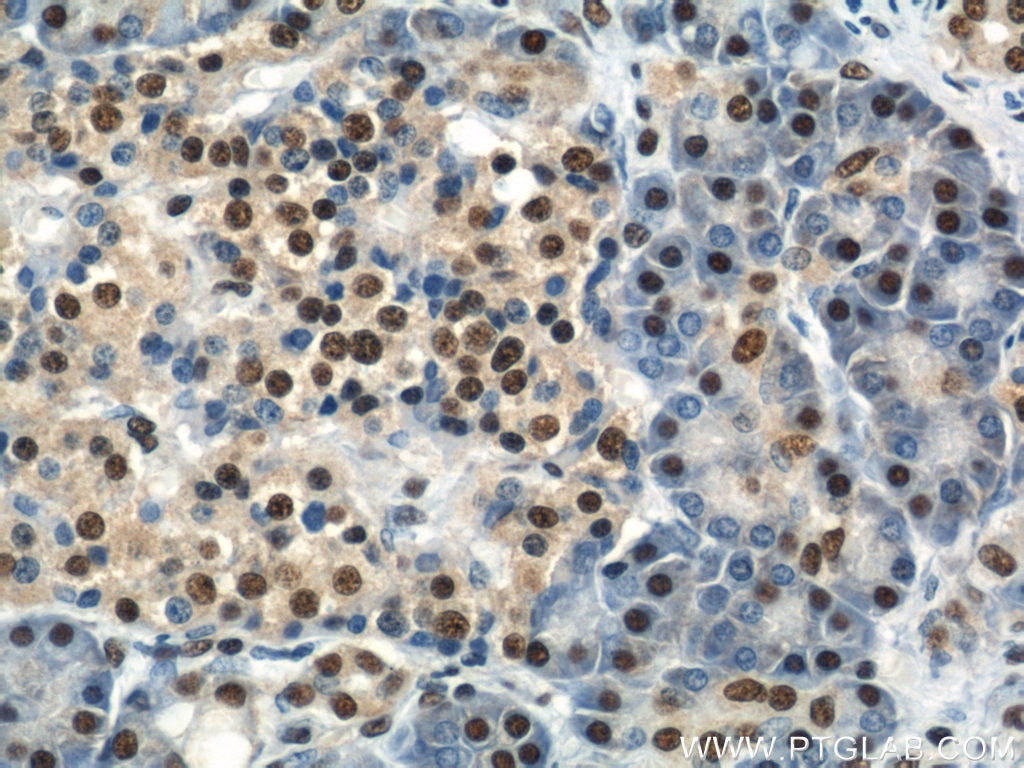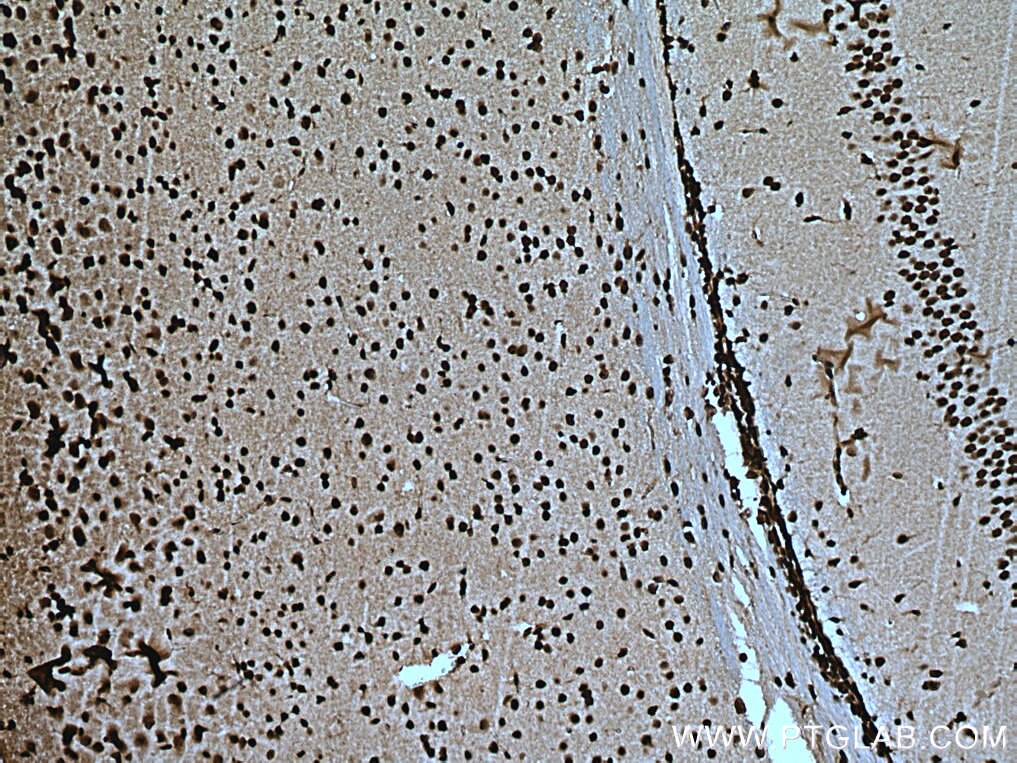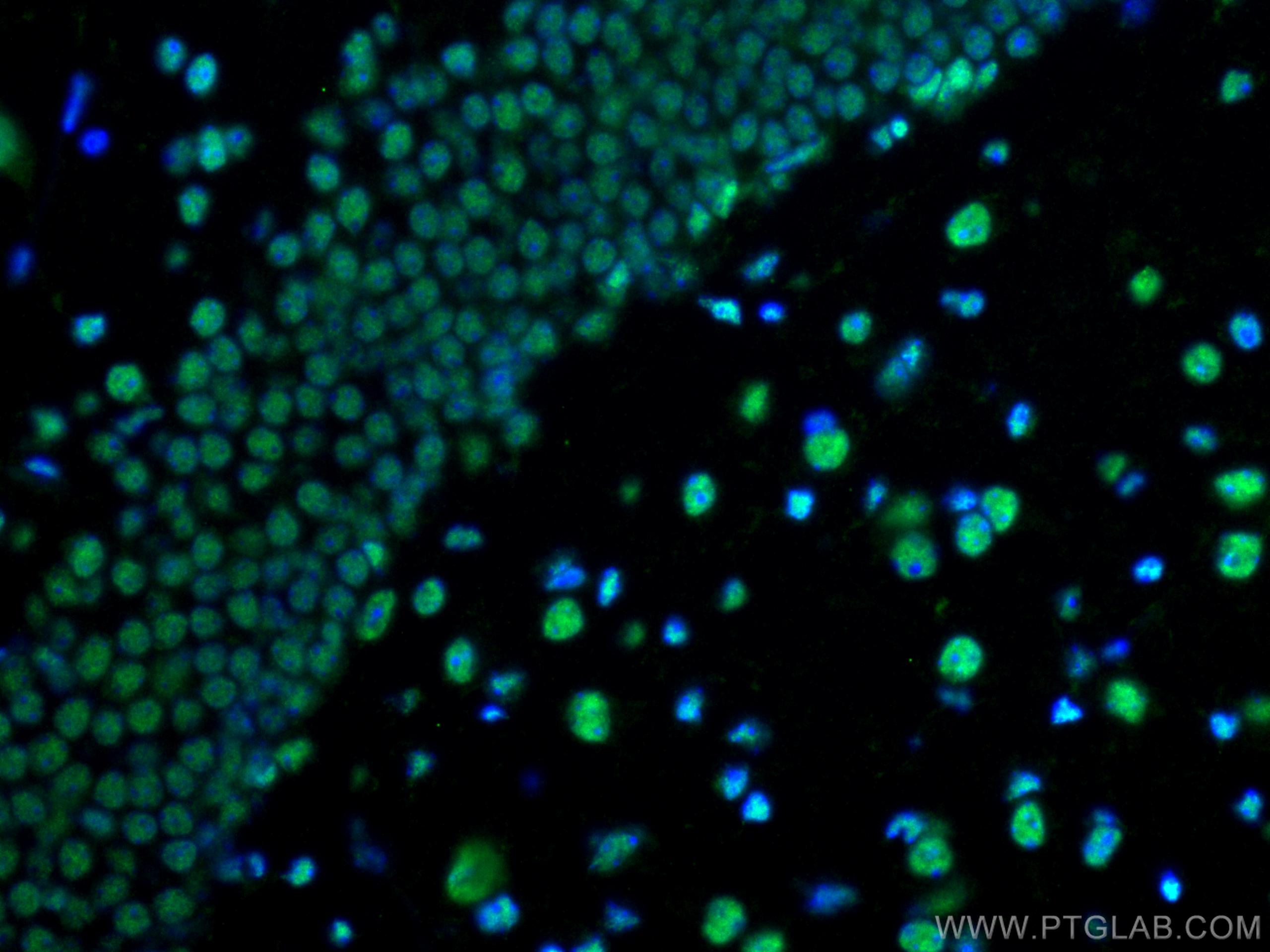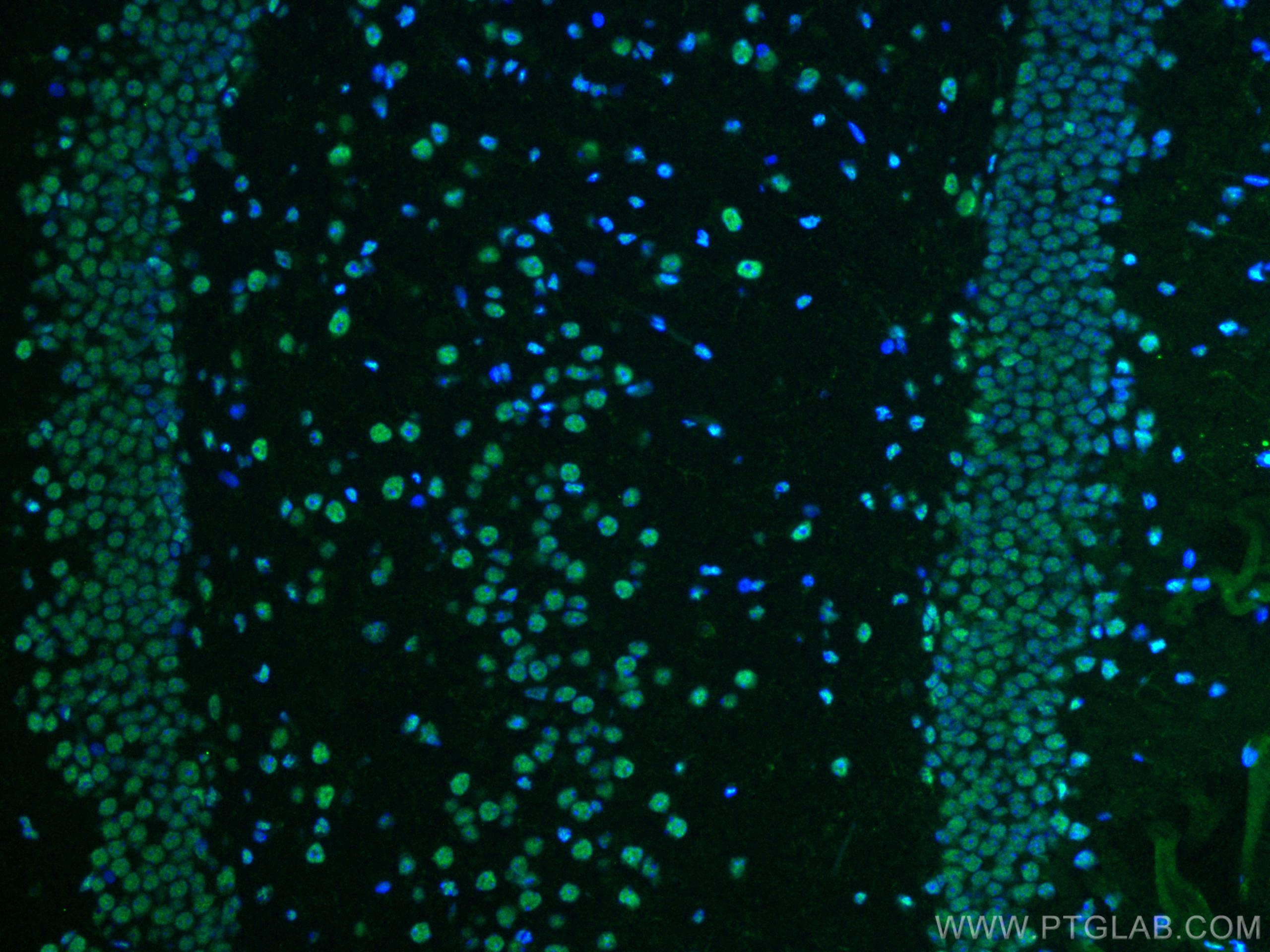- Phare
- Validé par KD/KO
Anticorps Polyclonal de lapin anti-PTBP1
PTBP1 Polyclonal Antibody for WB, IHC, IF-P, ELISA
Hôte / Isotype
Lapin / IgG
Réactivité testée
Humain, rat, souris
Applications
WB, IHC, IF-P, IP, CoIP, RIP, ELISA
Conjugaison
Non conjugué
N° de cat : 12582-1-AP
Synonymes
Galerie de données de validation
Applications testées
| Résultats positifs en WB | cellules A431, cellules BxPC-3, cellules HeLa, cellules Jurkat, cellules K-562, tissu cardiaque de rat, tissu pulmonaire de souris |
| Résultats positifs en IHC | tissu de cancer de la prostate humain, tissu cérébral de souris, tissu pancréatique humain il est suggéré de démasquer l'antigène avec un tampon de TE buffer pH 9.0; (*) À défaut, 'le démasquage de l'antigène peut être 'effectué avec un tampon citrate pH 6,0. |
| Résultats positifs en IF-P | tissu cérébral de souris, |
Dilution recommandée
| Application | Dilution |
|---|---|
| Western Blot (WB) | WB : 1:2000-1:16000 |
| Immunohistochimie (IHC) | IHC : 1:50-1:500 |
| Immunofluorescence (IF)-P | IF-P : 1:50-1:500 |
| It is recommended that this reagent should be titrated in each testing system to obtain optimal results. | |
| Sample-dependent, check data in validation data gallery | |
Informations sur le produit
12582-1-AP cible PTBP1 dans les applications de WB, IHC, IF-P, IP, CoIP, RIP, ELISA et montre une réactivité avec des échantillons Humain, rat, souris
| Réactivité | Humain, rat, souris |
| Réactivité citée | rat, Humain, souris |
| Hôte / Isotype | Lapin / IgG |
| Clonalité | Polyclonal |
| Type | Anticorps |
| Immunogène | PTBP1 Protéine recombinante Ag3277 |
| Nom complet | polypyrimidine tract binding protein 1 |
| Masse moléculaire calculée | 60 kDa |
| Poids moléculaire observé | 60 kDa |
| Numéro d’acquisition GenBank | BC013694 |
| Symbole du gène | PTBP1 |
| Identification du gène (NCBI) | 5725 |
| Conjugaison | Non conjugué |
| Forme | Liquide |
| Méthode de purification | Purification par affinité contre l'antigène |
| Tampon de stockage | PBS with 0.02% sodium azide and 50% glycerol |
| Conditions de stockage | Stocker à -20°C. Stable pendant un an après l'expédition. L'aliquotage n'est pas nécessaire pour le stockage à -20oC Les 20ul contiennent 0,1% de BSA. |
Informations générales
Polypyrimidine tract-binding protein (PTBP1), also known as heterogeneous nuclear ribonucleoprotein type I (hnRNP I), is a nuclear protein that binds pre-mRNAs in specific regions of the hnRNA-protein complexes sensitive to micrococcal nuclease. It involves in pre-mRNA splicing and the regulation of alternative splicing events. PTBP1 promotes RNA looping when bound to two separate polypyrimidine tracts in the same pre-mRNA, and promotes the binding of U2 snRNP to pre-mRNA. Besides, it can cooperate with RAVER1 to modulate switching between mutually exclusive exons during maturation of the TPM1 pre-mRNA, and represses the splicing of MAPT/Tau exon 10
Protocole
| Product Specific Protocols | |
|---|---|
| WB protocol for PTBP1 antibody 12582-1-AP | Download protocol |
| IHC protocol for PTBP1 antibody 12582-1-AP | Download protocol |
| IF protocol for PTBP1 antibody 12582-1-AP | Download protocol |
| Standard Protocols | |
|---|---|
| Click here to view our Standard Protocols |
Publications
| Species | Application | Title |
|---|---|---|
Nat Cancer SULT1A1-dependent sulfonation of alkylators is a lineage-dependent vulnerability of liver cancers | ||
Nat Cell Biol Arg-tRNA synthetase links inflammatory metabolism to RNA splicing and nuclear trafficking via SRRM2 | ||
Blood circMYBL2, a circRNA from MYBL2, regulates FLT3 translation by recruiting PTBP1 to promote FLT3-ITD AML progression. | ||
Dev Cell Genome-wide analysis of pseudogenes reveals HBBP1's human-specific essentiality in erythropoiesis and implication in β-thalassemia. |
Avis
The reviews below have been submitted by verified Proteintech customers who received an incentive for providing their feedback.
FH X (Verified Customer) (11-07-2024) | A good antibody to detect endogenous PTBP1 with a MW of around 60 kd.
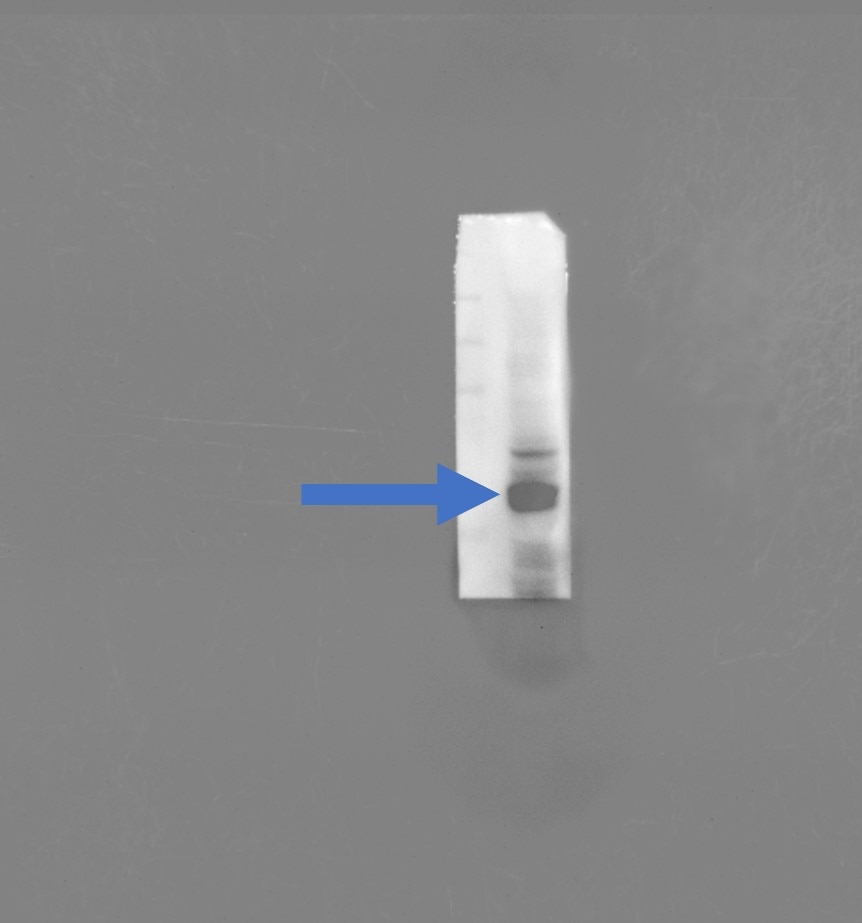 |
